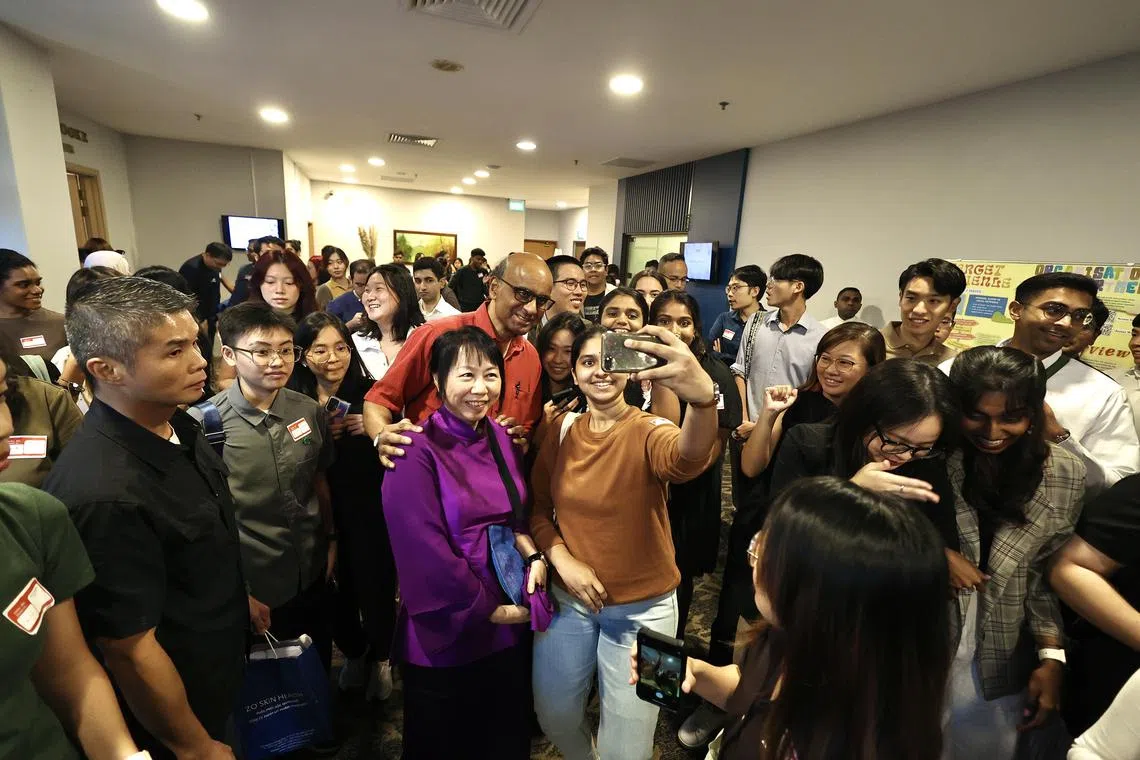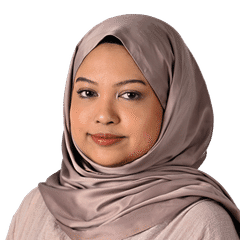Rekindling solidarity crucial to bridge Singapore’s social divide: Tharman
Sign up now: Get ST's newsletters delivered to your inbox

Presidential hopeful Tharman Shanmugaratnam and his wife Jane Yumiko Ittogi posing for photos with participants at a dialogue at YWCA Fort Canning on Aug 19.
ST PHOTO: HESTER TAN
SINGAPORE - School grades, income levels, economic matters and conventional success are things that can be measured by individuals and countries.
But things that cannot be measured, like relationships and social distances, should be given more thought as intangibles make up a lot of the quality of a society, presidential hopeful Tharman Shanmugaratnam said on Saturday.
The former senior minister said that when he was a child in the 1960s, most people in Singapore were poor.
“There was a great sense of sameness, starting from poverty, and then starting a movement up. Everyone was the same.”
Now, there is less of a sense of sameness. “Those who have succeeded through education, jobs or business, they bring up their children in a different way, compared with those who are less successful.”
It is important to focus on how to create and recreate a sense of solidarity that is very important to the Singapore identity – more so than for most other countries, he added.
Mr Tharman was speaking to about 300 young people from social enterprises, advocacy groups and ground-up movements at a dialogue hosted by non-profit Access Singapore at YWCA Fort Canning.
During the hour-long session, the audience chatted with Mr Tharman on topics such as mental health, the LGBTQ+ community, racial issues and climate change.
On racial issues, Mr Tharman said things have improved now, and it was very different in the old days. “It is remarkable that we are so peaceful and people accept each other despite being so multiracial and multi-religious. But we have to go further, and it requires not looking down on people, putting yourself in someone’s shoes, and going the extra step to get to know and respect each other.”
Sharing his personal experiences with racial discrimination growing up, he said: “Never think that growing up as a minority is the same as growing up as a majority (race) in Singapore.”
It was normal for some people to not want to sit next to him on the bus, he said. It was also not uncommon for buses to not stop if he was the only person flagging it down at the bus stop.
“I was used to it then, but things are so much better now,” he said, but added that more can be done.
Those within minority groups who are successful have to be sensitive to the fact that those in the lower rungs of their own communities still face these challenges, he added.
On the topic of mental health, which he said is an issue of growing concern, Mr Tharman noted how people know where to get help if suffering from illnesses such as diabetes or cancer.
“There is nothing embarrassing about it, and everyone is encouraged to see the doctor and stick to their appointments as much as possible.”
But when it comes to mental illness, people keep it in the shadows and people around them whisper about it.
“We have to change that. Deal with it just like all other illnesses.”
Mr Tharman added: “The role of the presidency, in a more uncertain and contested environment, and in a more diverse environment where people have more different views, becomes more important. Not just symbolically, but by supporting initiatives on the ground which help bring people together, that reduce differences and that create a sense of solidarity.”



